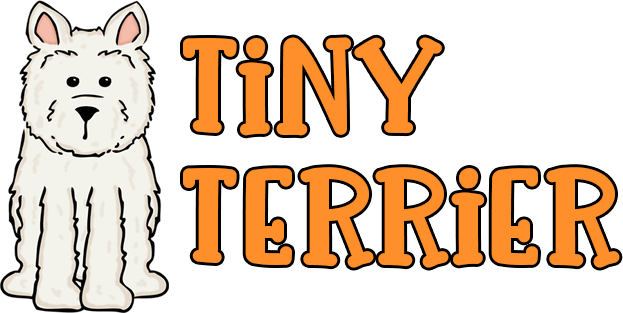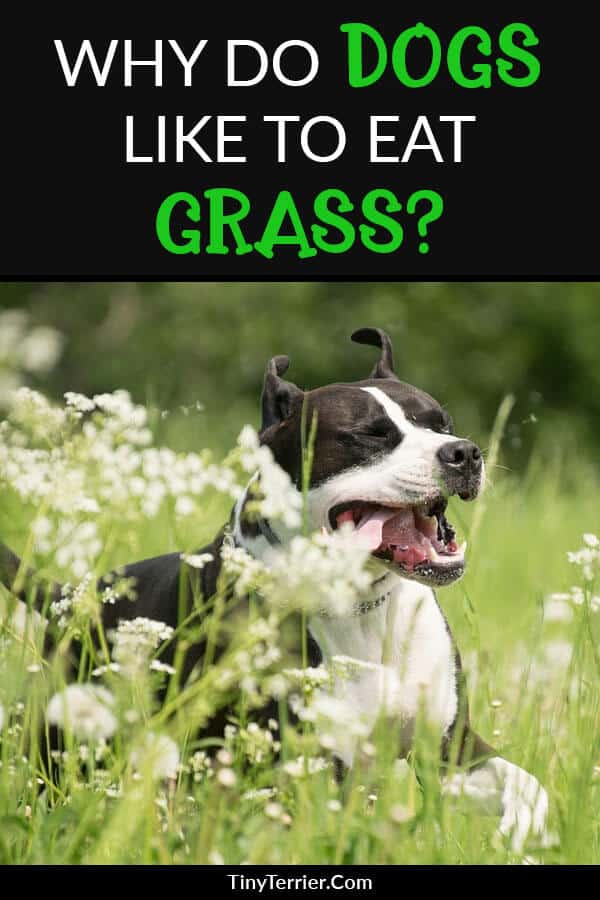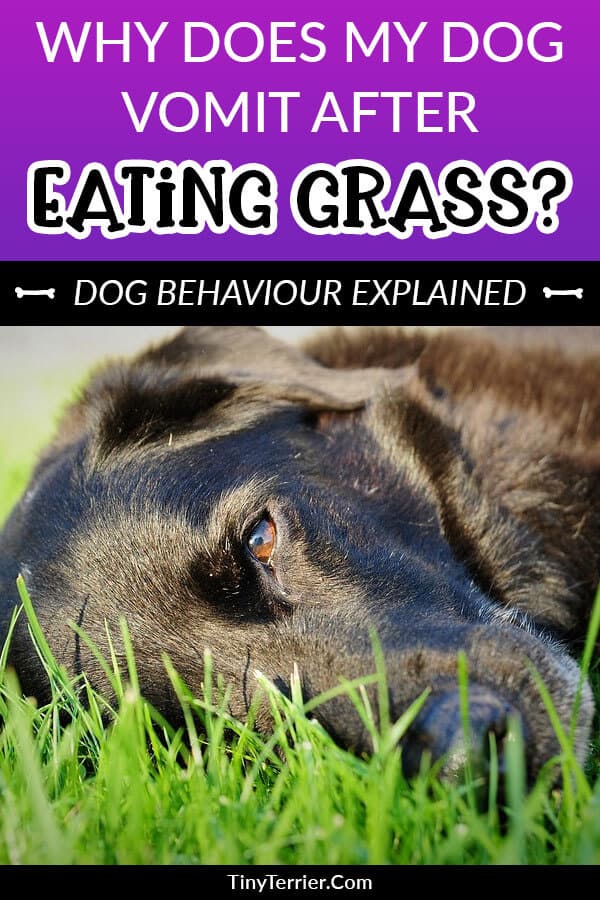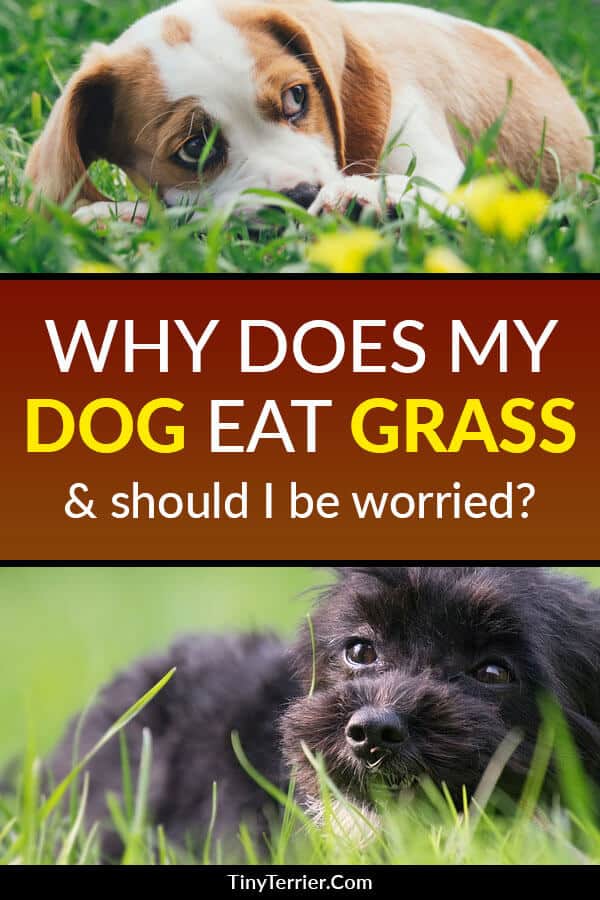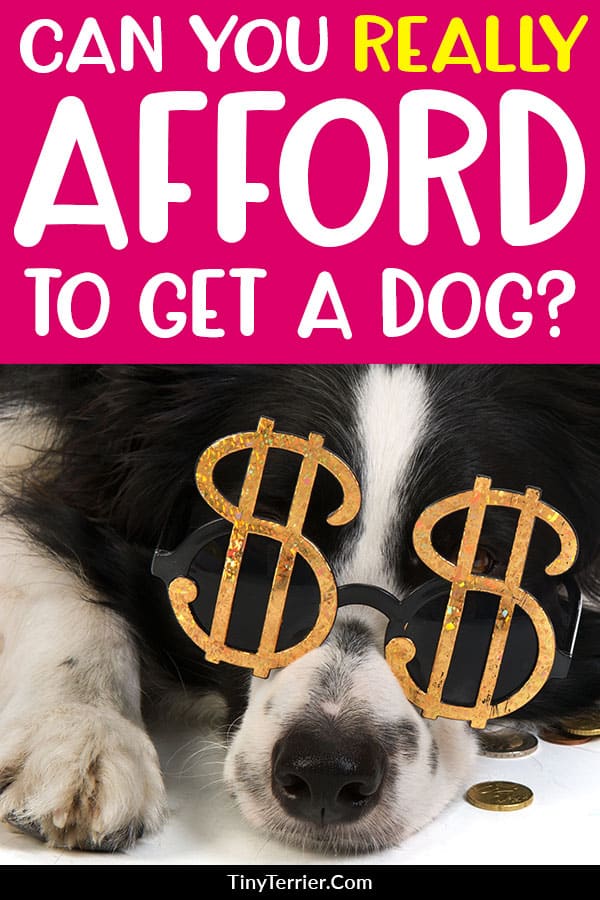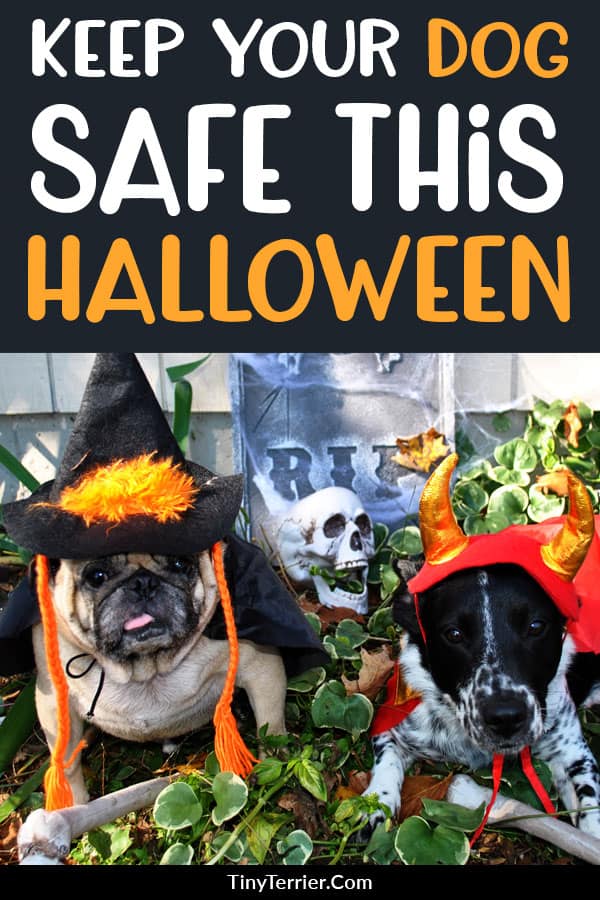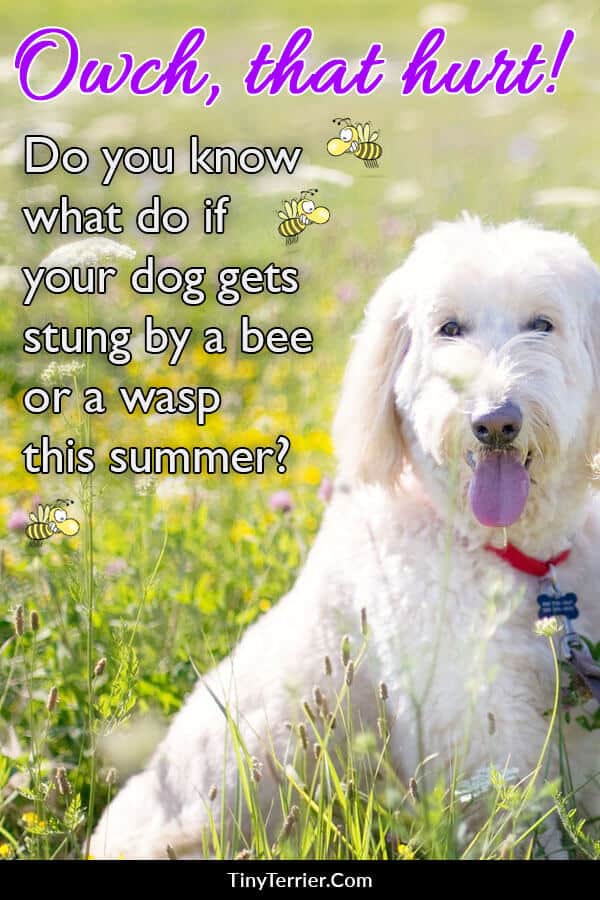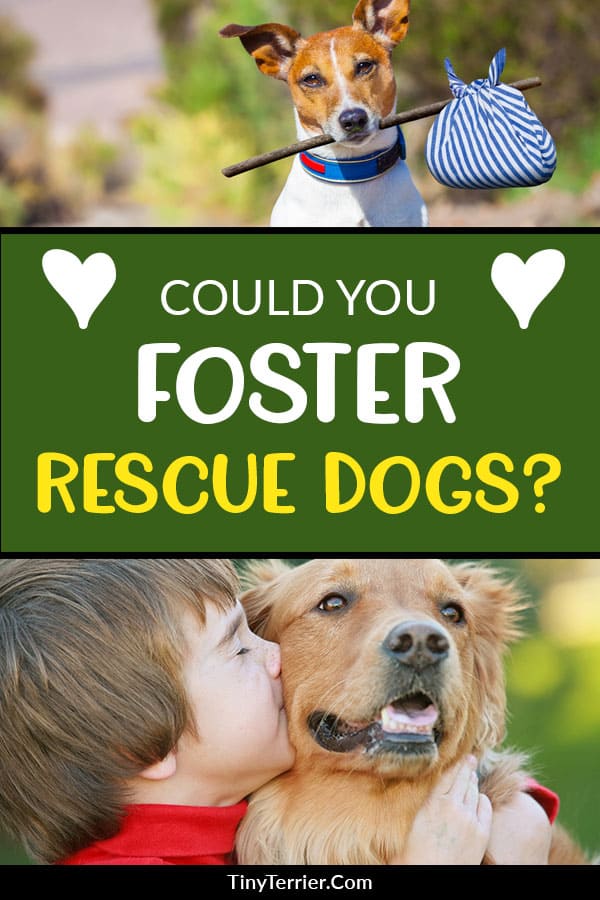Why Does my Dog Eat Grass? Is it Dangerous?
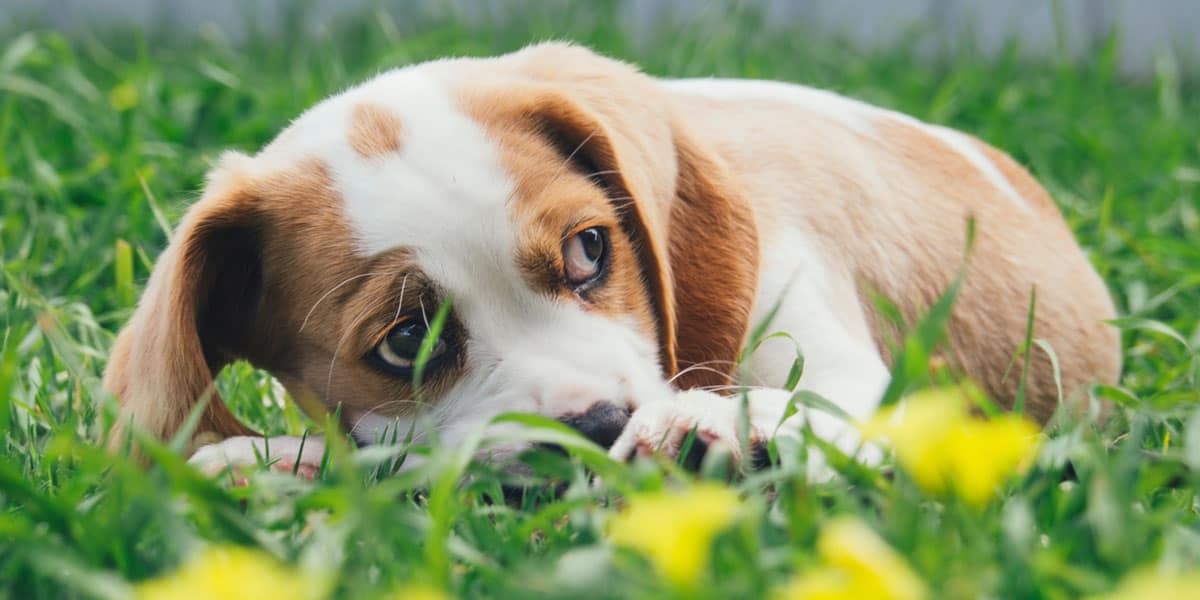
Updated on December 28th, 2019
Why do dogs eat grass? Do they like the taste, or are there other reasons why your dog is eating grass?
The first time I saw my puppy eat grass, I immediately panicked and started Googling to find out if the garden grass was poisonous to dogs. Luckily, it isn’t – and it’s a perfectly natural thing for a dog to do.
A dog may vomit after eating grass, and that’s generally nothing to be concerned about. It’s certainly something to be aware of though – especially if they come inside straight after consumption. Nobody wants to be clearing grass-filled dog vomit off of their living room carpet!
That’s not to say that a dog will always be sick after eating grass though. Some dogs simply enjoy the taste or eat grass because they are bored.
Disclosure: This post contains affiliate links, which means that I will earn a commission if you click through and make a purchase (at no additional cost to you).
Will my dog be sick if he eats grass?
Not necessarily! This is one of the most common questions from dog owners when they are worried about their dog eating grass.
This is due to the common myth that dogs eat grass to purposefully make themselves sick. This theory has not been proven, and some people dispute this theory on the basis that dogs are not clever enough to associate eating grass with being sick.
According to the pet experts over at WebMD, less than 25% of dogs vomit regularly after eating grass and only 10% showed signs of illness before eating grass. This suggests that there are additional reasons for doing so.
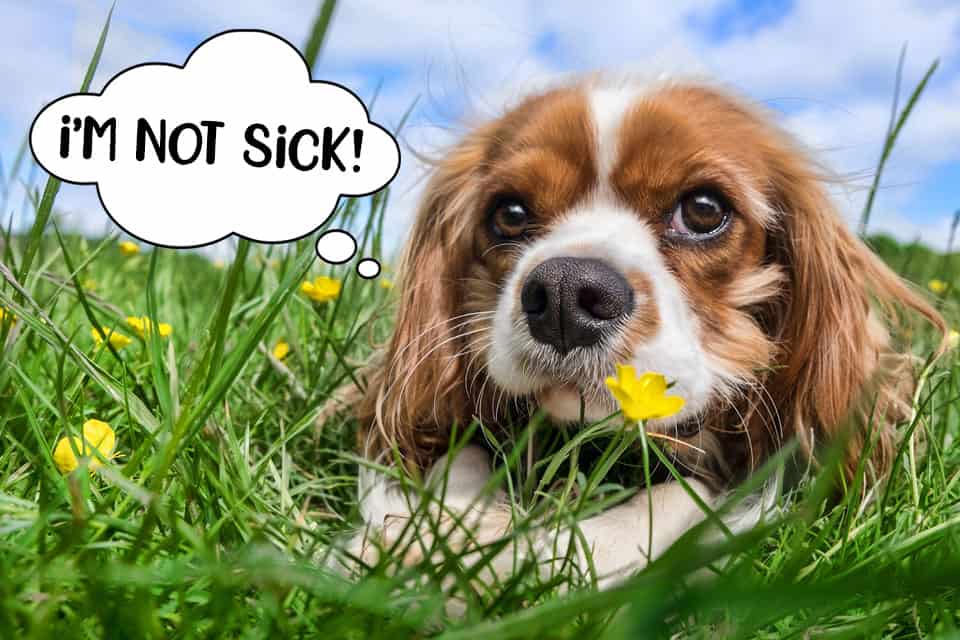
Why do dogs eat grass?
There is no definitive reason for why dogs eat grass. It could be due to a number of factors, including:
They enjoy the taste or texture
Some dogs just find the taste of grass super scrummy! There is no reason for them to eat it apart from simple enjoyment.
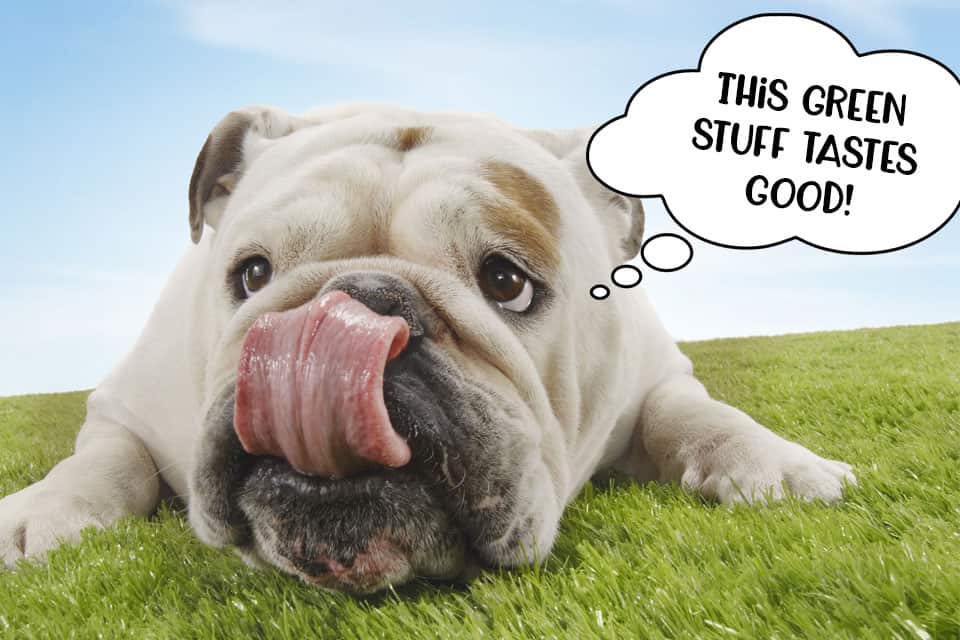
Their stomach hurts or they are feeling unwell
Some experts do believe that dogs eat grass as a way to self-medicate when they’re feeling unwell. My dogs tend to eat grass if they have had a bit too much food and are feeling lethargic and overfull. It usually makes them throw up and then they get back to their normal fun-loving selves.
To make up for missing nutrients in their diet
Back to the experts! Some believe that dogs are eating grass in an attempt to make up for missing nutrients in their diet. The most likely cause of this is believed to be a lack of fibre.
They are bored
If there’s nobody to play with, how about a little grass chewing to pass the time? Some dogs may eat grass as a way to avoid sitting still. Try offering them a puzzle toy or do some training with them to help work their brains and alleviate boredom.
They are trying to get your attention
Yup, I saved the best (or worst!) until last. If you always react to your dog eating grass by telling them to stop or going over to them to shoo them way then they will learn that having a little daytime snack is the perfect way to get your attention. Whoops.

Why is my dog eating grass all of a sudden?
If your dog is eating grass all of a sudden, after not previously doing so, then it could still be due to any of the reasons above.
My dogs seem to go through phases of not eating grass for weeks, and then trying to munch it down every time they go out in the garden!
I think some of it probably corresponds to the time of year, and the state of the grass.
When the grass is long around the edges of the garden, that’s when my dogs start chewing on the grass.
If we keep it shorter, it doesn’t seem to be so appealing for them.
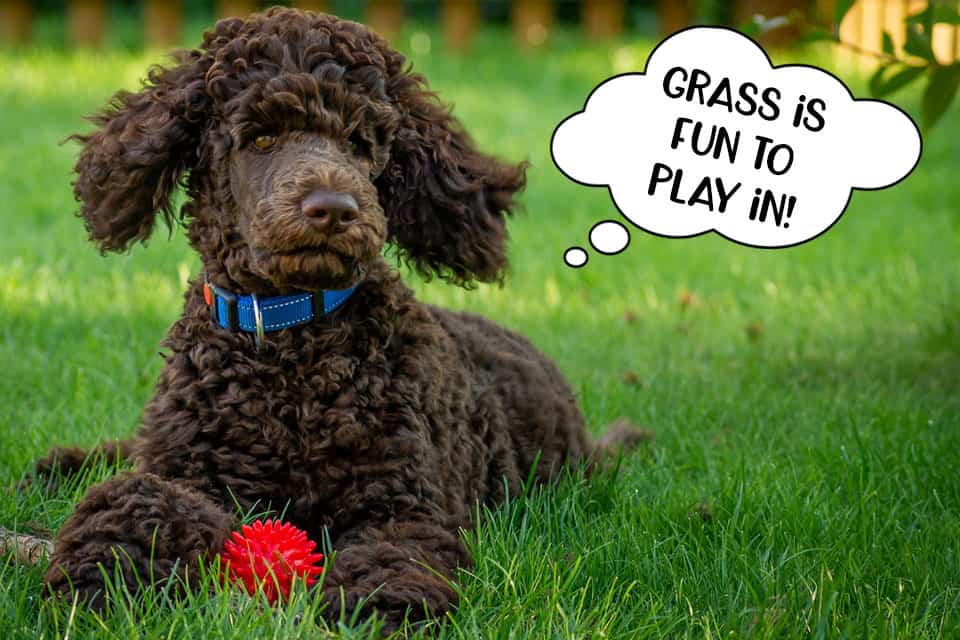
Is eating grass bad for my dog?
It’s probably okay for your dog to munch down on some tasty grass every now and then. However, if they are eating grass regularly or consume an excessive amount then it may be worth investigating if there is a cause for this.
Perhaps they are missing something from their diet, or they are simply trying to engage a reaction from you so that you come and play with them to relieve them from boredom.
If you are concerned about your dog’s excessive grass eating then you should get them checked out by your vet to check for any underlying health conditions.
One thing to bear in mind is that whilst eating grass might not be harmful to your pet, any chemicals or fertilisers that are sprayed on to it could be harmful.
If you have recently treated your lawn and you know that your dog likes to eat grass, it’s best to keep them off it or supervise their use of the garden until you are sure that the chemicals have dissipated. You should ideally only use non-toxic products on your grass to minimise the risk of your dog getting sick from eating grass.
Be sure to check for other plants in your garden that may be poisonous to dogs. You don’t want your dog accidentally ingesting a dangerous plant whilst eating grass. The Kennel Club have a list of house and garden plants that are dangerous to dogs.
For example, daffodil bulbs are poisonous to dogs to make sure your dog does not dig any up and ingest them or chew on them.
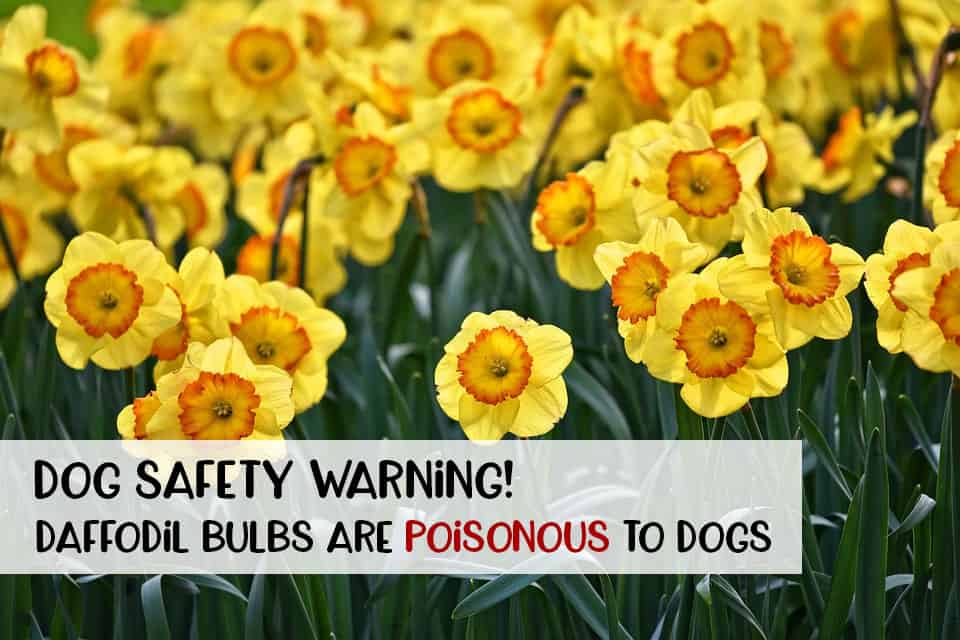
How do I stop my dog from eating grass?
You may not need to stop your dog from eating grass if they only do it occasionally. Grass eating is normal behaviour for dogs as long as they do it infrequently, even if they vomit afterwards.
If you think that the grass eating is due to boredom, try exercising your dog more regularly or spending more time with them. It’s not only walks that tire your dog out – playing fetch, puzzle games, hide-and-seek, learning tricks/commands, grooming and chew toys can all help to alleviate boredom.
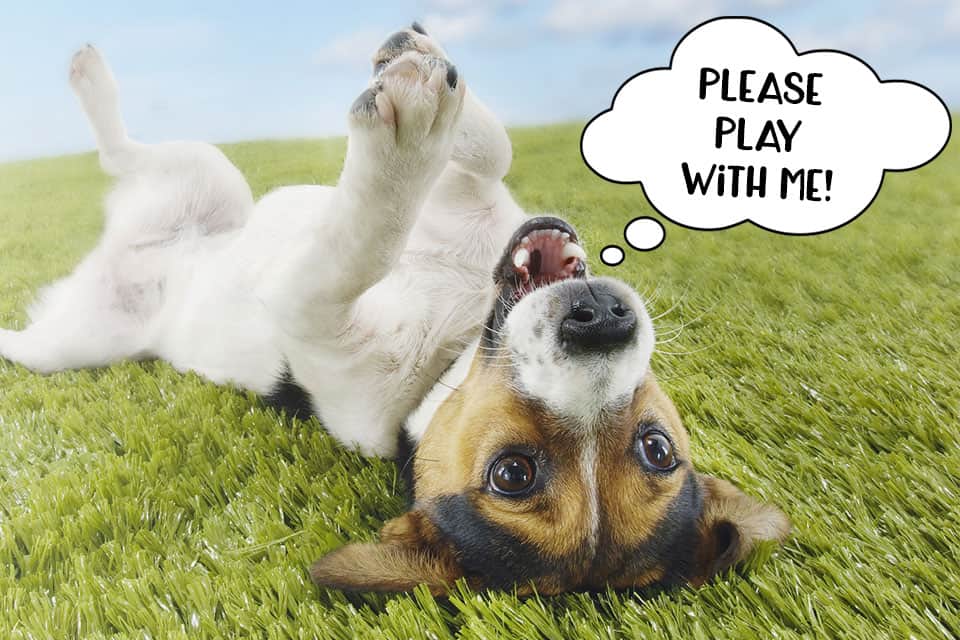
Your dog may simply be trying to get your attention, in which case it’s important to try not to directly reward this behaviour as it teaches them that eating grass leads to them getting what they want.
If you suspect that your dog is eating grass due to a deficiency in their diet, look at the amount of fibre content in the food you give them. If that amount is low, switching them to a high-fibre food may help them to stop eating grass if it is fibre that they are missing.
Remember that dog food changes should be done slowly over time – never immediately switch to another food entirely as that can cause upset stomachs.
One final way to prevent your dogs from eating grass is to regularly trim all long grass around the edge of your garden such as by fences and around the bottom of your washing line. It tends to be the longer, thicker grass that appeals to dogs, so if you reduce the availability then they may simply grow out of the habit of eating it.
